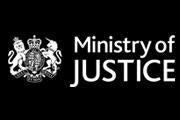
Shadow justice secretary Dominic Grieve said today that parliament has been responsible for the steady development of an ad-hoc privacy law by failing to create precise rules governing freedom of expression.
Grieve told the Society of Editors conference the Max Mosley case was the most “startling example” of a privacy law being created through use of the Human Rights Act.
The News of the World was ordered to pay Mosley £60,000 last year when he successfully sued for breach of privacy after it published photos and video revealing motorsport boss’s sado-masochistic sex session with five prostitutes.
Daily Mail editor Paul Dacre used his opening address to last year’s Editors conference to launch a broadside against Justice Eady, who presided over the Mosley case, claiming the British press was having a privacy law imposed on it “from the arrogant and amoral judgments of one man.”
Grieve said:”I’m not in the business of criticising individual judicial decisions but if we as parliamentarians enact law that lacks precision there is absolutely no point complaining when judges fill the vacuum.”
He said that the media industry and government needed to have an “honest dialogue” over the issue of freedom of expression and the right to privacy.
“I’m concerned about the trend [for judge-made law] for two reasons, first because it is creating legal uncertainty, which is unsatisfactory because it leaves the media exposed to unpredictable litigation.
“Second because changes of this magnitude require public debate. And it must be for elected lawmakers, not the courts to decide the delicate balance between free speech and personal privacy.”
Grieve told delegates at the event in Stansted, Essex, that a Bill of Rights commission was currently examining how a new bill might address a range of problems that occurred through implementation of the Human Rights Act, adding that free speech was an area where protections should be strengthened.
He said: “I fear that the slow dilution of free speech and open debate in this country is far more insidious a risk than a full frontal onslaught on our freedoms from men in jackboots. I don’t want to see defensive journalism.”
Grieve said he had “strong views” that success fees, used as an incentive for lawyers in cases pursued under conditional fee arrangements, should be reduced or eliminated as part of change to a litigation culture where lawyers took an economic stake in the outcome of cases.
CFA success fees had contributed, he said, to England becoming the “forum of choice” when suing for libel.
Grieve said he also advocated extension of Freedom of Information into other areas of public life, including newly nationalised banks, academies and the Association of Chief Police Officers.
Email pged@pressgazette.co.uk to point out mistakes, provide story tips or send in a letter for publication on our "Letters Page" blog

